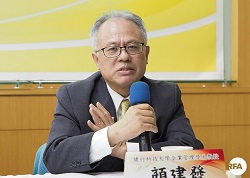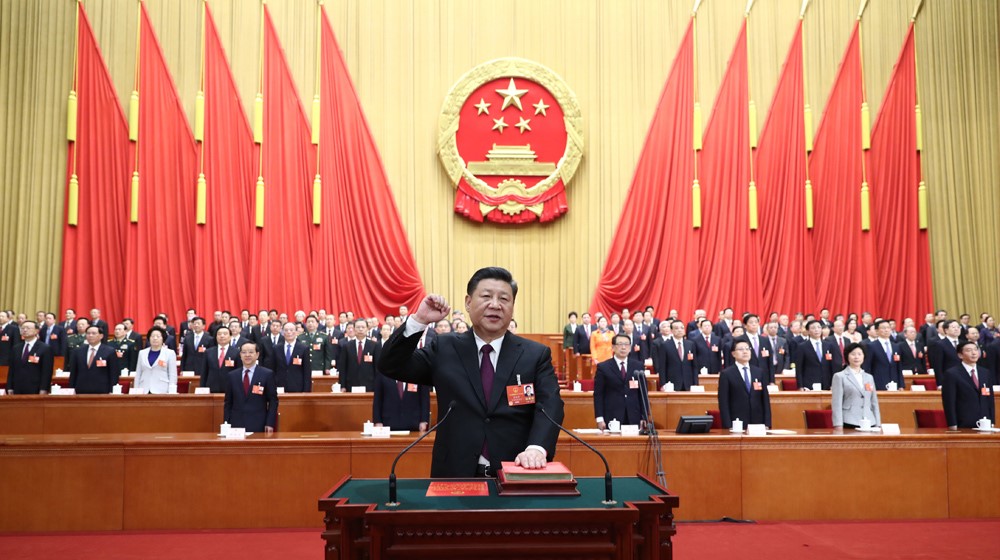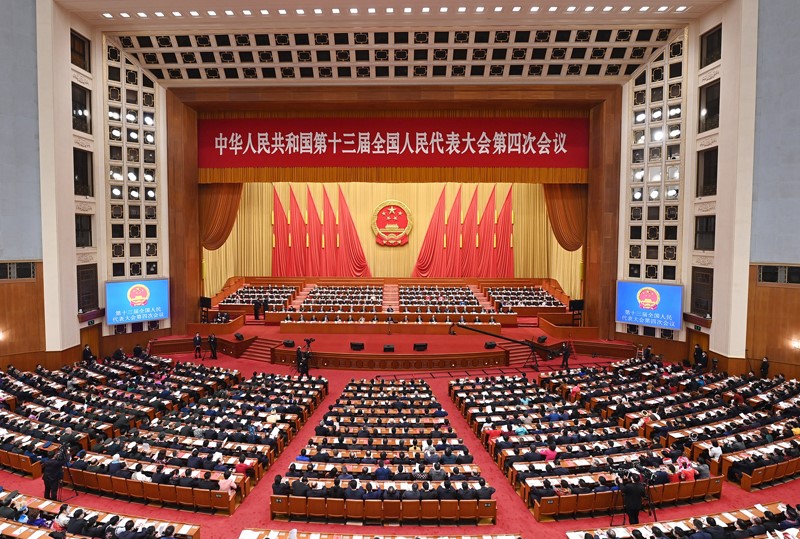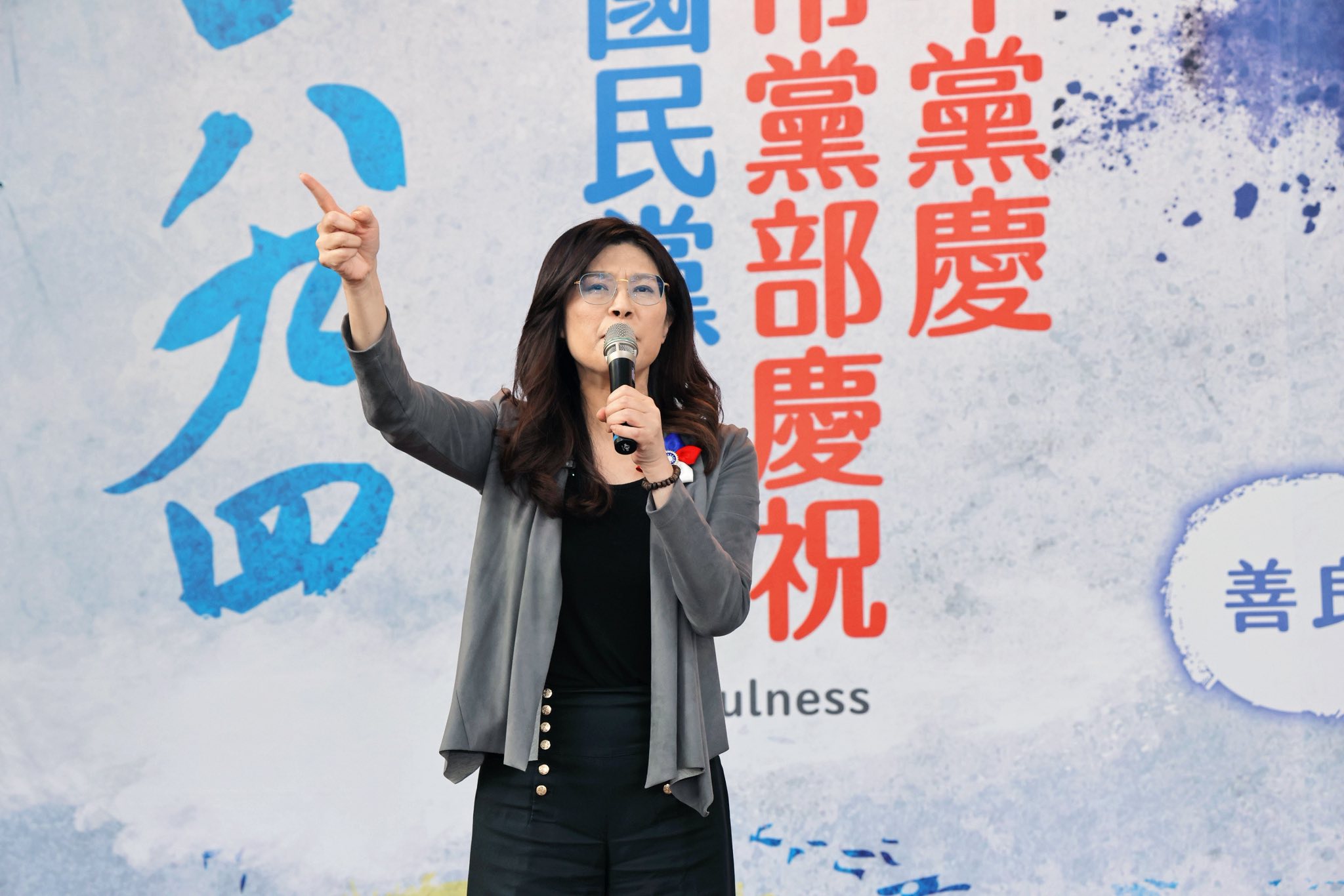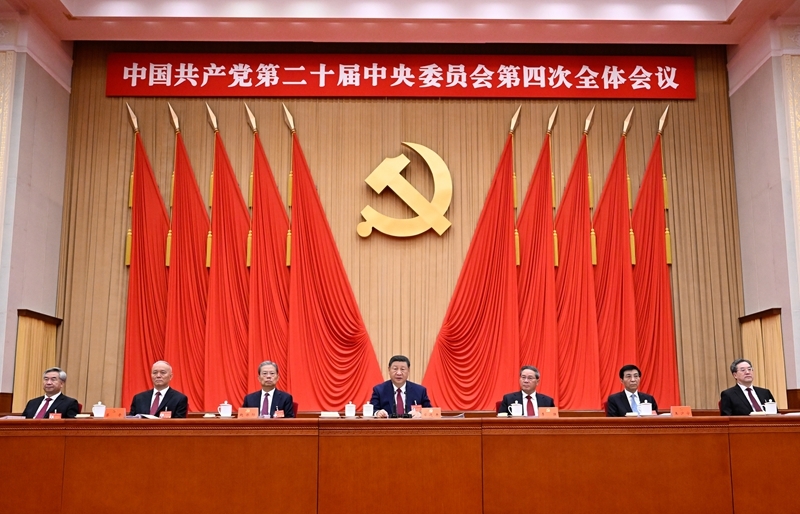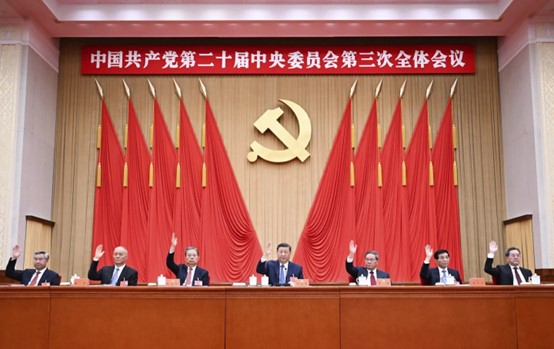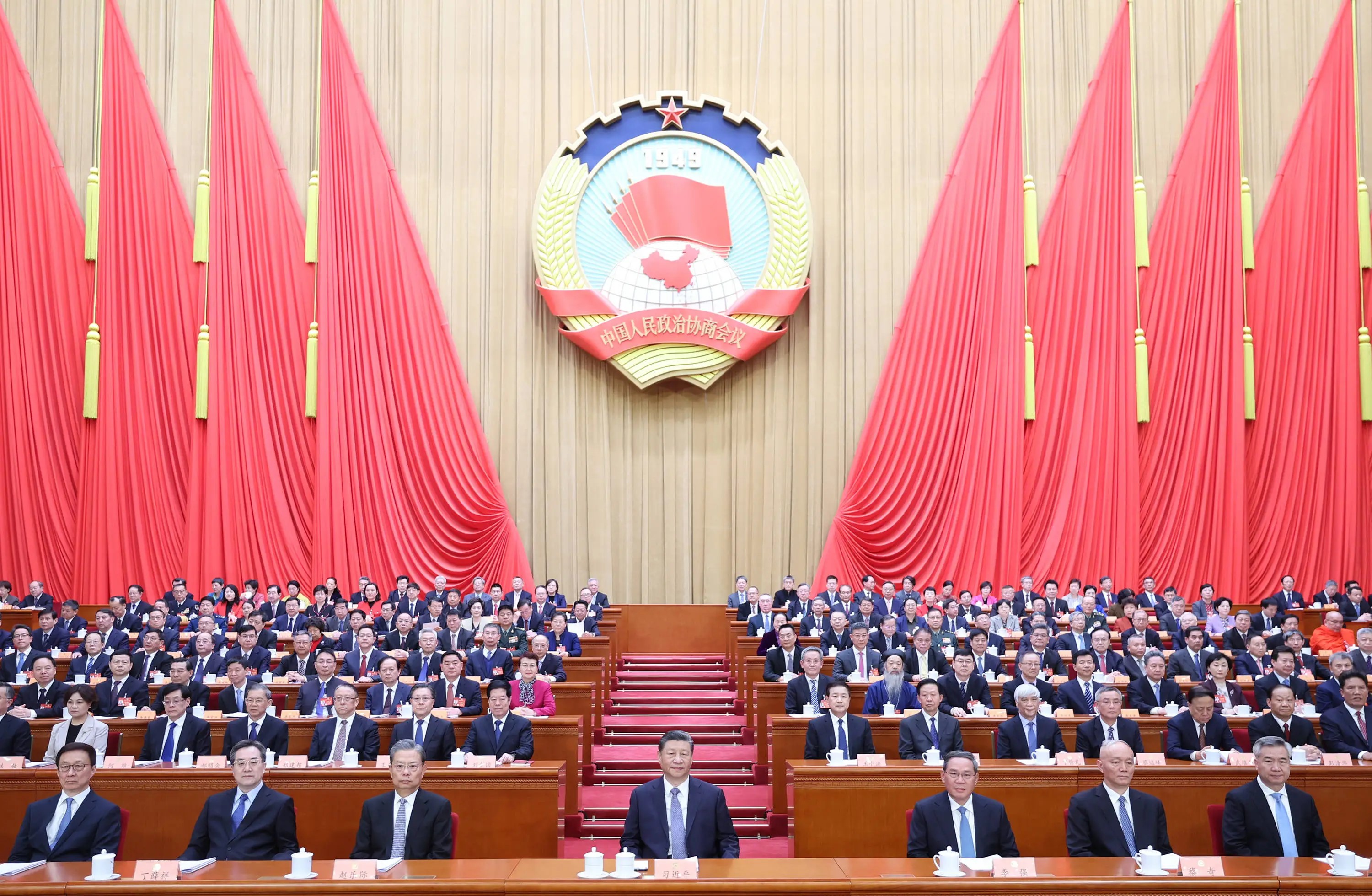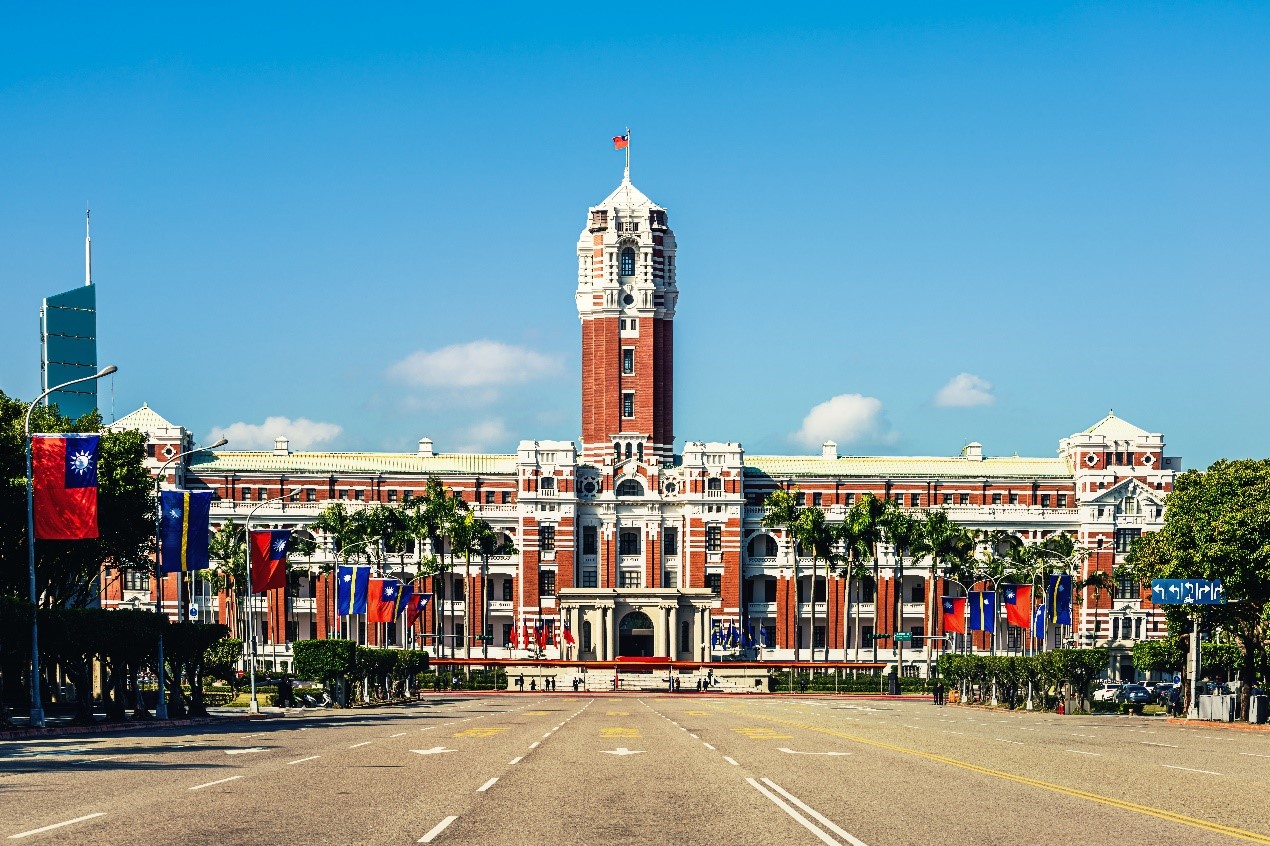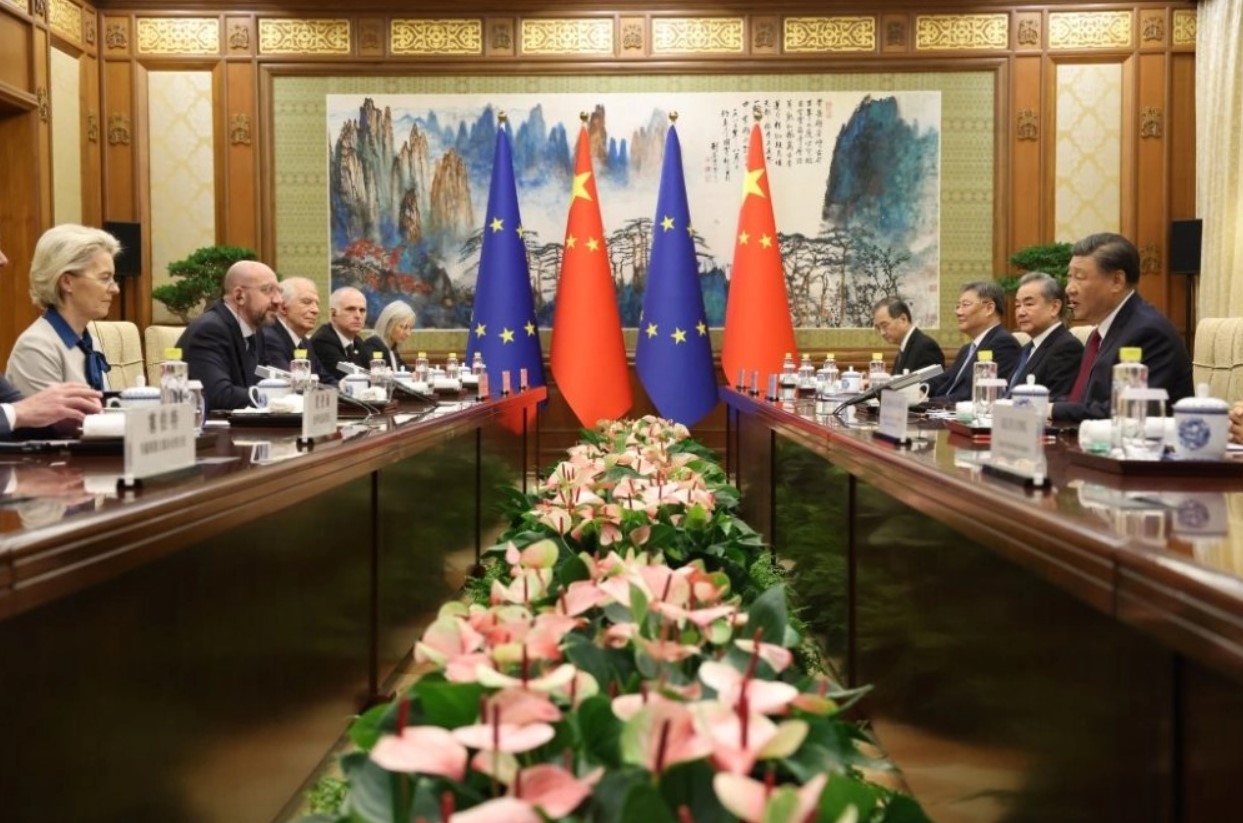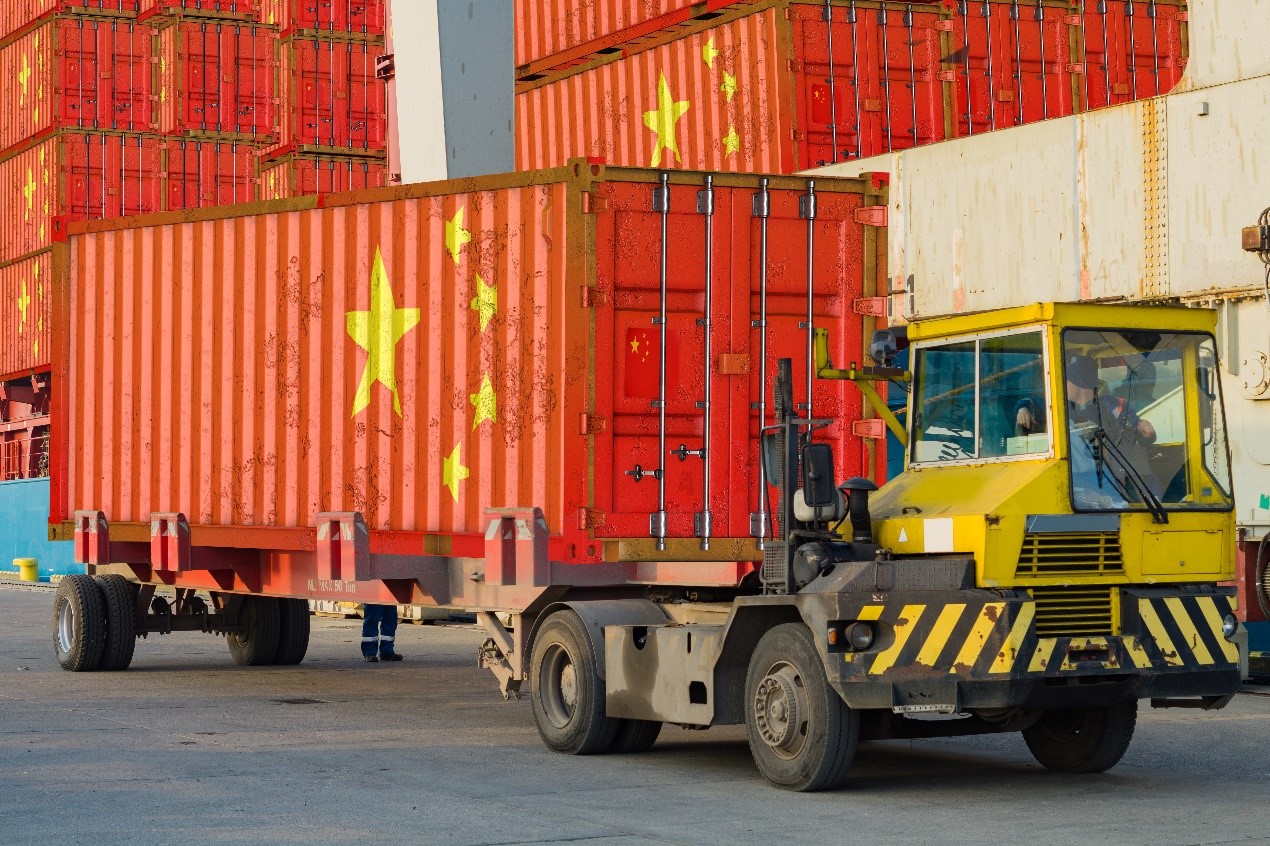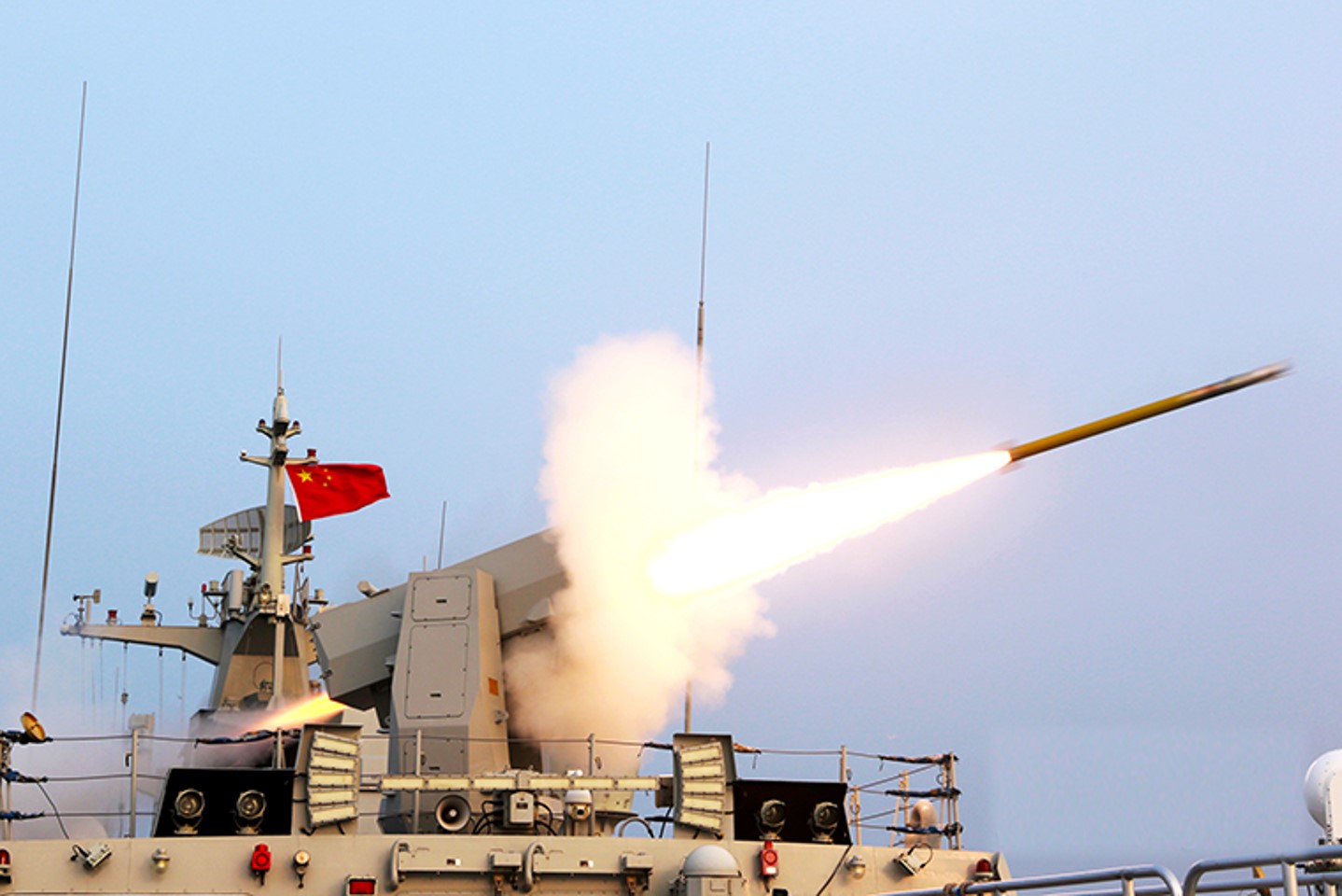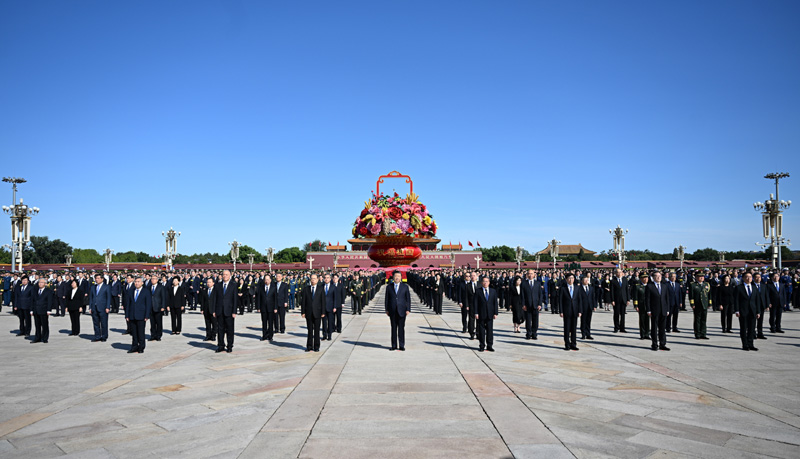Xi Jinping Is Riding the Back of the Tiger

Source: CPC Members Net, March 17, 2018, CPC Members Net, <http://news.12371.cn/2018/03/17/ARTI1521261469488761.shtml>
Newsletter 2018 No. 6
Xi Jinping Is Riding the Back of the Tiger
Professor, Department of Business Administration,
Chien Hsin University of Science and Technology
March 23, 2018
The new administration of the People's Republic of China was established when the "Two Sessions" concluded on March 20. Some new faces, or old faces with new positions, and policy measures will show up on China's political arena in the future. It is no wonder that Beijing's Taiwan policy and the officials appointed to run it will attract more and more public attention in Taiwan. Nevertheless, the Taiwan policy should be envisaged from a holistic view, linking China's domestic and international concerns. The three historic tasks written into the 19th Party Congress report are advancing modernization, realizing China's reunification, and preserving world peace and promoting common development. Only in these texts can we clearly catch the trajectory of Taiwan-China relations.
Clearly, Beijing's Taiwan policy is an organic part of the whole package building China as a great modern socialist country by 2050. Since the basic tone of Xi Jinping's Taiwan policy must be in accordance with that of the bigger blueprint for the future China, Xi is forced to adopt a peaceful solution to the Taiwan issue. Although Beijing leaders have never promised to renounce the use of force as the final resort, a military option is only auxiliary for pressuring Taiwan to accept the One China principle or at least refrain from claiming Taiwan independence.
From this perspective, the high-ranking officials appointed by Xi to the field of Taiwan affairs should have a rich wealth of diplomatic experience so as to further constrict Taiwan's international space for maneuvering. Under Xi, the leader of the Central Leading Group for Taiwan Affairs, Wang Yang, was unanimously elected as Chairman of the Chinese People's Political Consultative Conference on March 15th. Wang is also a Chinese heavyweight in dealing with China-US trade. In the administration, Liu Jieyi, Director of the State Council's Taiwan Affairs Office, labeled as a fighter at the UN, is expected to play a key role.
Other prominent figures in charge of Taiwan affairs will include You Quan, Head of the United Front Work Department, who spent five years as party secretary of Fujian province, and Dai Bingguo, the chairman of the National Society of Taiwan Studies, who was the country's top diplomat serving as a state councilor for five years under then president Hu Jintao. It was speculated that Beijing's new Taiwan policy team would be more focused on dealing with major countries like the United States to put more pressure on Taiwan with the aim of coercing the island's independence-leaning government into acknowledging an alleged key cross-strait agreement between the Chinese Communist Party and the Kuomintang, known as the 1992 Consensus.
This new team for managing Taiwan affairs is expected to use its wealth of diplomatic experience to further constrict Taiwan's international space for maneuvering, with the aim of pressuring the Democratic Progressive Party government into accepting the ‘1992 Consensus'. As stated above, a peaceful solution is most likely to be adopted by Beijing partly because the proposed blueprint of a socialist country in the 19th Congress report requires a peaceful environment, and partly because the US and its allies have grave concerns regarding peace, stability and development in this region.
From China's perspective, the main obstacle for the China dream is the US, so stabilizing their relationship will be a prime strategic concern. Since it is not the time to challenge the US, China may follow a dualistic strategy: softly engaging the US and looking forward to surpassing it eventually, and simultaneously, actively building a China-centric circle for a new order evading US dominance. In order to achieve these goals without provoking the US, Chinese leaders will try to convince their followers to keep strategic patience.
Toward Taiwan, however, China will conduct a strategy of "hardening the hard, softening the soft," setting a red line by rhetorical coercion, diplomatic pressure and military drills, on one hand, and channeling Taiwanese into the Chinese orbit by offering Taiwanese economic interests and opportunities, on the other hand. China's "salami-slicing" tactics are meant to isolate, weaken, and paralyze the Taiwan government, and then eventually annex Taiwan into its territory. Without claiming a timetable for unification, Xi skillfully and implicitly tries to link the three historic missions together.
Clearly, Xi may not be in a rush to push forward the unification agenda. However, the linkage of the three missions itself also coincidentally binds Taiwan's future with all the stake-holders in the region and the world. All of the regional strategic interests are drawn together; Taiwan is not alone in coping with the realization of the Chinese dream of national rejuvenation. Apparently, both Abe's "Diamond Strategy" and Trump's "Indo-Pacific Strategy" are basically a reaction toward China rising. Furthermore, India, Australia, the UK, and the EU are also actively involved.
Led by the generation of the Cultural Revolution, China's foreign policies tend to be more aggressive, ambitious, and destructive; however, China is situated in the middle of a "sandwich situation," with pressure both from above, the US, and from below, the other rising powers. Furthermore, the consolidation of Xi's power may leave him alone at the top of the pyramid of the power structure. He has to be more cautious as China has become a country of one-man rule. Under such circumstances, Xi will have no other option but to advocate "strategic patience" again.
In a realistic and pragmatic sense, China will make a stable relationship with the US a priority by exercising its rich economic bargaining chips to continue blocking Taiwan from de jure independence by manipulating the three wars, i.e. its legal war, media war, and psychological war. Nevertheless, pro-Taiwan initiatives like the National Defense Authorization Act for Fiscal Year 2018 and the
Taiwan Travel Act have shown that Beijing is very passive. Xi is supposed to make a soft line approach his mainstream doctrine, but he has to face stern challenges from the voices of the hard-liners. Xi is riding the back of the tiger.

